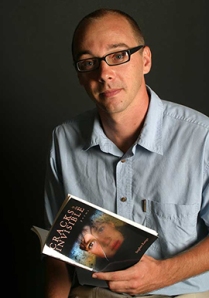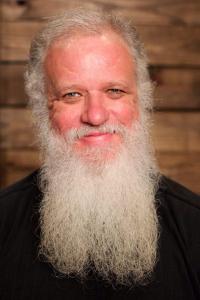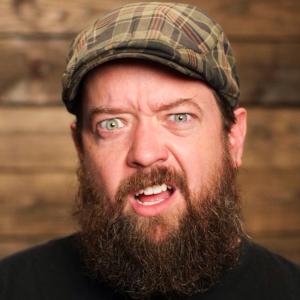Caitlyn McCrea, poetry editor, interviews two members of the League of Extraordinary Authors: YA author of The Geneva Project Series, Christina Benjamin, and children’s book author of The Rocket Ship Bed Trip, N. Jane Quackenbush.
Where are you from?
Benjamin: I’m originally from Northeast Pennsylvania. I moved to Florida after I graduated high school to go to Flagler and study art. After Flagler I attended Keystone College and University of Central Florida.
Quackenbush: I was born in upstate New York, but I moved to St. Augustine, FL when I was 5 years old and have been here ever since, with the exception of my college years in West Palm Beach.
When did you know you wanted to be a writer?
Benjamin: I think I’ve always known it. Ever since I was a child I loved telling stories. My dad and I used to have the best time making up stories every chance we got; driving to school, sitting around a campfire, hiking, etc.
Quackenbush: I knew I wanted to be a writer when I went to college and studied the literary greats like Shakespeare, Lord Byron and John Keats. I was in awe of their talent and hoped that if I studied them enough, some of their talent would transfer to me.
What are your books about?
Benjamin: The books I’ve published so far are young adult fiction. They’re about friendship, adventure, courage and self discover, with a little bit of magic and romance mixed in for fun.
Quackenbush: The first book I have written is based on a dream that I had when I was about 4 years old. I dreamed that my bed turned into a rocket ship and I went on a fantastic journey through outer space. In all my books I have a signature style which includes an educational component that most readers are unaware that they are learning. In The Rocket Ship Bed Trip I introduce the young reader to astronomy. My goal is to fuel sweet dreams.
Do you have a specific writing style?
Benjamin: I love Harry Potter, Hunger Games, The Mortal Instruments, and that sort of addictive YA fiction, so I think I was naturally drawn to write a series in that wheelhouse. I figured why not write something that I would love to read? That’s what Stephen King says anyway. I finished the last books in the Harry Potter, Hunger Games and Twilight series all within the same year and was at a loss for what to read next, and that’s ultimately what inspired me to start my own series. I figured that way I could be in charge of the characters, creating the fantastic world they exist in, and I would never have to wonder what happened to them after the series has ended.
Quackenbush: I prefer to write poems, as they seem to write themselves. When I sat down to write The Rocket Ship Bed Trip, it came out so quickly and naturally that it didn’t feel like work at all. At that same time a lot of other poems in the same genre came in a rush that I had to put to paper. I have to say, I love those moments of inspiration. I am currently trying to expand my scope in writing a middle grade chapter book.
What was/is the most difficult part of writing?
Benjamin: Finding the time to actually sit down and do it. In a perfect world, I would live in a little cottage on the water filled with good books, great music, wine, my dog, and my husband, with no distractions of the real world.
Quackenbush: The most difficult part in writing is having the writing look effortless. One of my favorite poets is Robert Frost, and I adored how his poems appeared as if they were waiting for him to combine the words perfectly with the rhyme together forming a perfect body of literary genius while looking so natural.
Are you self-published? If so, how did you start that process?
Benjamin: Yes I’m proud to be a self-published indie author. My first book, Truth, was really just supposed to be for me. It was something to do after my favorite books came to an end. I thought I’d become a writer instead of a reader for a while. I wrote everyday on my lunch break at work and never told anyone I was writing a book. I didn’t even know if I could do it or if it would be any good. But when I finally finished it, I gave it to my husband. He loved it of course, but he’s my husband, he has to say that, right? He’s a very talented graphic designer and after reading it he designed a book cover, researched how to start our own publishing company and then worked with Createspace and Smashwords to format the book into paperback and eBook versions. And as they say, the rest is history. I’ll never forget the day I held the first copy of my book in my hands. I think I may have cried. After going through the whole process, start to finish, I have such a huge respect for authors. So much more goes into publishing a book than I ever would have imagined. I really enjoy being self-published because I’ve been a part of every single step and I’ve learned so much about the business of writing, which in turn makes me a better writer.
Quackenbush: I am self-published. I went to a writer’s conference and learned that I wanted to keep all the rights to my stories. I didn’t want a big company have the right to decide whether my books would be available to the public. I knew it would be harder, but I think my books will become worldwide and I’m really excited to see all the places The Rocket Ship Bed Trip will go.
Why did you form the League of Extraordinary Authors?
Benjamin: Writing can be solitary profession, but I’m a social person, so I really enjoy any time I can get together with other writers or industry professionals. I learn the most from speaking to other talented writers and I love that this is a profession of such creative people. I felt a positive energy when I worked with two special authors in particular; Jaimie M. Engle and N. Jane Quackenbush. The three of us have so much fun together and share the same focus on learning, sharing, and success. Forming a platform where we could work together to share our passion for writing and enrich the lives of young readers through literacy was a natural progression.
Quackenbush: Christina Benjamin, Jaimie Engle and I got together and decided that we could all help one another in areas that each of us was having trouble with. Being an author can sometimes feel lonesome and overwhelming, but when you have a support group, a lot of those fears disappear. Together we are stronger and most importantly we have a lot of fun!
What are you reading now?
Benjamin: I like to read a lot of books at once, so I’m reading Clockwork Princess, Ready Player One and my book Secrets for the millionth time, to make sure that the third book I’m writing meshes.
Quackenbush: I love to read historical fictions. I am currently reading The Outlander Series.
What do you hope to do in future projects?
Benjamin: I’m really big on giving back. I feel so blessed to have been able to follow my dream of being a professional writer. In a way, books have saved me. There has been so many times where I’ve found solace in the pages of a book or in just writing down my own thoughts. I want to share that with as many other people as I can. I’ve recently started a One for One initiative program for the sales of my books. For each book I sell from my website, I plan can donate one. My goal is to give 1000 books to schools, libraries and literacy programs in need. Here is the link if anyone wishes to partake: https://squareup.com/market/thegenevaprojectstore
Quackenbush: I hope to expand my literary style and open myself up to writing more challenging work. It’s hard for me to stay focused, which is why writing poems come so much more naturally than books, but I want to strengthen and grow in my writing.
What is/are your favorite book(s)?
Benjamin: This is always such a hard question. I feel like there’s no one book that I can single out because I’ve been shaped by so many. I love Shakespeare and I think he should get the credit for making me fall in love with literature; A Midsummer Night’s Dream in particular. Then there’s J.K. Rowling. I’m so grateful for the trail she has blazed for YA fiction and I’m a huge Harry Potter fan. I also love Zora Neale Hurston’s Their Eyes Were Watching God.
Quackenbush: I love so many books, but some of my favorites are Here be Dragons, Wicked, The Red Tent, World with No End, etc.
What are your thoughts on FLARE? Would you have submitted?
Benjamin: I love FLARE! I would definitely have submitted. I think it’s so important for students to learn about the industry and have a creative outlet that celebrates them in so many diverse ways. Flagler as a whole does a great job of that. I often say that if I had followed my passion for writing at an early age I wonder where I would be now. I didn’t start my first book until I was 31! Start now! There is no better time than right now.
Quackenbush: I think FLARE is an amazing catalyst for artists to have their work displayed. As well as a learning device for students and staff to develop and construct. Flagler College is a big step ahead in areas like FLARE and WFCF. I would absolutely submit my work to FLARE and hope for inclusion with my fingers crossed!
What advice would you give to struggling writers?
Benjamin: Don’t give up and don’t compare yourself to other writers. Everyone’s journey is different; enjoy yours, the good, the bad, and the ugly. Focus on what you love about writing and do more of that. Finding a way to bring myself back to what made me start writing in the beginning always keeps me grounded and brings my writing back to it’s truest form. I love the idea that writing is limitless and that anything I can dream up is possible. Writing is truly the only form of magic that I’ve seen in the world and that’s what I love about it; the magic.
Quackenbush: Don’t write because you want to become famous or because you want to write the next big blockbuster; write because you love it, because you can’t help it, and your reward will come.







